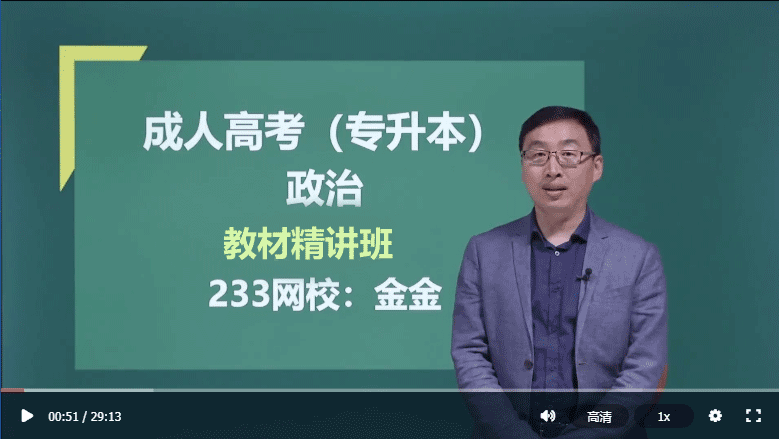2012жҲҗдәәй«ҳиҖғ(й«ҳиө·зӮ№)иӢұиҜӯжЁЎжӢҹиҜ•йўҳеҸҠзӯ”жЎҲдёү
- 第3йЎөпјҡе®ҢеһӢеЎ«з©ә
- 第4йЎөпјҡйҳ…иҜ»зҗҶи§Ј
гҖҖгҖҖDirections:
гҖҖгҖҖThere are four reading passages in this part. Each passage is followed by five questions. For each question there are four suggested answers marked A, B, C and D. Choose one best answer and blacken the corresponding letter on the Answer Sheet.
гҖҖгҖҖPassage One
гҖҖгҖҖAll the housewives who went to the new supermarket had one great ambition: to be the lucky customer who did not have to pay for her shopping. For this was what the notice just inside the entrance promised. It said: вҖңRemember, once a week, one of our customers gets free goods. This May Be Your Lucky Day!вҖқ
гҖҖгҖҖFor several weeks Mrs. Edwards hoped, like many of her friends, to be the lucky customer. Unlike her friends, she never gave up hoping. The cupboards in kitchen were full of things which she did not need. Her husband tried to advise her against buying things but failed. She dreamed of the day when the manager of the supermarket would approach her and say: вҖңMadam, this is Your Lucky Day. Everything in your basket is free.вҖқ
гҖҖгҖҖOne Friday morning, after she had finished her shopping and had taken it to her car, she found that she had forgotten to buy any tea. She dashed back to the supermarket, got the tea and went towards the cash-desk. As she did so, she saw the manager of the supermarket approach her. вҖңMadam,вҖқ he said, holding out his hand, вҖңI want to congratulate you! You are our lucky customer and everything you have in your basket is free!вҖқ
гҖҖгҖҖ61. The housewives learnt about the of free goods _______.
гҖҖгҖҖA. on TV B. from the manager
гҖҖгҖҖC. at the supermarket D. from the newspaper
гҖҖгҖҖ62. Mrs. Edwards ________.
гҖҖгҖҖA. is always very lucky B. had no friends
гҖҖгҖҖC. hoped to get free shopping D. gets disappointed easily
гҖҖгҖҖ63. Mrs. EdwardsвҖҷs husband tried to ________.
гҖҖгҖҖA. make her unhappy B. cheer her up
гҖҖгҖҖC. buy things with her D. stop her buying things
гҖҖгҖҖ64. Mrs. Edwards went back to the supermarket quickly because she had to _______.
гҖҖгҖҖA. buy another thing B. talk to the manager
гҖҖгҖҖC. pay for her shopping D. find her shopping
гҖҖгҖҖ65. Mrs. Edwards must have been ________.
гҖҖгҖҖA. pleased B. delighted C. proud D. disappointed
гҖҖгҖҖPassage Two
гҖҖгҖҖDeep inside a mountain near Sweetwater in East. Tennessee is a body of water known as the Lost Sea. It is listed by the Guinness Book of Would Records as the worldвҖҷs largest underground lake. The Lost Sea is part of an extensive and historic cave system called Craighead Caverns.
гҖҖгҖҖThe caverns have been known and used since the days of the Cherokee Indian nation. The cave expands into a series of huge rooms from a small opening on the side of the mountain. Approximately one mile from the entrance, in a room called вҖңThe Council Room,вҖқ many Indian artisfacts have been found. Some of the items discovered include pottery, arrowheads, weapons, and jewelry.
гҖҖгҖҖFor many years there were persistent rumors of a large underground lake somewhere in a cave, but it was not discovered until 1905. In that year, a thirteen-year-old boy named Ben Sands crawled through a small opening three hundred feet underground. He found himself in a large cave half filled with water.
гҖҖгҖҖToday tourists visit the Lost Sea and ride far out onto it in glass-bottomed boats powered by electric motors. More than thirteen acres of water have been mapped out so far and still no end to the lake has been found. Even though teams of divers have tried to explore the Lost Sea, the full extent of it is still unknown.
гҖҖгҖҖ66. The Lost Sea is unique because it is ________.
гҖҖгҖҖpart of a historical cave system
гҖҖгҖҖthe biggest underground lake in the world
гҖҖгҖҖlisted in the Guinness Book of World Records
гҖҖгҖҖthe largest body of water in Tennessee
гҖҖгҖҖ67. The Craighead Caverns have been known ________.
гҖҖгҖҖA. through history B. since the time of the Indian nations
гҖҖгҖҖC. since 1905 D. since divers explored them
гҖҖгҖҖ68. Who located the Lost Sea in recent times?
гҖҖгҖҖA. The Cherokee Indians. B. Tourists.
гҖҖгҖҖC. Ben Sands. D. Scientists.
гҖҖгҖҖ69. What was found in вҖңThe Council RoomвҖқ?
гҖҖгҖҖA. A small natural opening. B. A large cave.
гҖҖгҖҖC. Another series of rooms. D. Many old Indian objects.
гҖҖгҖҖ70. It can be inferred from the passage that the Craighead Caverns presently serve as ____.
гҖҖгҖҖA. an underground testing site B. an Indian meeting ground
гҖҖгҖҖC. a tourist attraction D. a motor boat race course
гҖҖгҖҖPassage Three
гҖҖгҖҖGenerations of Americans have been brought up to believe that a good breakfast is one lifeвҖҷs essentials. Eating breakfast at the start of the day, we have all been told, and told again, is as necessary as putting gasoline in the family car before starting a trip.
гҖҖгҖҖBut for many people the thought of food first thing in the morning is by no means a pleasure. So despite all the efforts, they still take no breakfast. Between 1977 and 1983, the latest year for which figures are available, the number of people who didnвҖҷt have breakfast, increased by 33 percent.
гҖҖгҖҖFor those who feel pain of guilt about not eating breakfast, however, there is some good news. Several studies in the last few years indicate that, for adults especially, there may be nothing wrong with omitting breakfast. вҖңGoing without breakfast does not affect performance,вҖқ said Arrold E. Bender, former professor of the nutrition at Queen Elizabeth College in London, вҖңnor does giving people breakfast improve performance.вҖқ
гҖҖгҖҖScientific evidence linking breakfast to better health or better performance is surprisingly inadequate, and most of the recent work involves children, not adults, вҖңThe literatureвҖқ, says one researcher, Dr. Erresto at the University of Texas, вҖңis poorвҖқ.
гҖҖгҖҖ71. The latest year for which figures could be obtained is _______.
гҖҖгҖҖA. the year the author wrote the article B. 1977
гҖҖгҖҖC. any year between 1997 and 1983 D. 1983
гҖҖгҖҖ72. For those who do not take breakfast, the good news is that _______.
гҖҖгҖҖseveral studies have been done in the past few years
гҖҖгҖҖthe omission of breakfast does no harm to oneвҖҷs health
гҖҖгҖҖadults have especially made studies in this field
гҖҖгҖҖeating little in the morning is good for health
гҖҖгҖҖ73. вҖңвҖҰnor does giving people breakfast improve performanceвҖқ means ______.
гҖҖгҖҖanyone without breakfast does improve his performance
гҖҖгҖҖnot giving people breakfast improve performance
гҖҖгҖҖhaving breakfast does not improve performance, either
гҖҖгҖҖpeople having breakfast do improve their performance
гҖҖгҖҖ74. The word вҖңliteratureвҖқ in the last sentence refers to _______.
гҖҖгҖҖA. stories, poems, plays, etc. B. written works on a particular subject
гҖҖгҖҖC. any printed material D. the modern literature of America
гҖҖгҖҖ75. What is implied but NOT stated by the author is that _______.
гҖҖгҖҖbreakfast does not affect performance
гҖҖгҖҖDr. Erresto is engaged in research work at an institution of higher learning
гҖҖгҖҖnot eating breakfast might affect the health of children
гҖҖгҖҖProfessor Bender once taught college courses in nutrition in London
гҖҖгҖҖPassage Four
гҖҖгҖҖAbout 35% of all high school graduates in America continue their education in an institution of higher learning. The word college is used to refer to either a college or a university. These institutions offer four-year programs that lead to a Bachelor of Arts (B.A.) or Bachelor Science (B.S.) degree. Some students attend a junior college (providing only a two-year program) for one to two years before entering a four-year college as a sophomore (дәҢе№ҙзә§з”ҹ) or junior (дёүе№ҙзә§з”ҹ).
гҖҖгҖҖIt is generally easier to be accepted at a state university than at a private one. Most private schools require strict entrance examinations and a high grade point average (GPA), as well as specific college prep classes in high school. Private schools cost considerably more than state colleges and famous private schools are very expensive. Poorer students can sometimes attend, however, by earning scholarships. Some college graduates go on to earn advanced masters or doctoral degrees in grad (graduate) school. Occupations in certain fields such as law or medicine require such advanced studies.
гҖҖгҖҖSince college costs are very high, most students work at part-time jobs. Some have full-time jobs and go to school part-time. Often some will take five or more years to complete a four-year program because of money / job demands on their time.
гҖҖгҖҖWhile the college and work demands take up the great part of a studentвҖҷs time, most still enjoy social activities. Sports, dances, clubs, movies, and plays are all very popular. However, gathering together for long, philosophical talks at a favorite meeting place on or near the university is probably the most popular activity.
гҖҖгҖҖ76. College education is _______ in America.
гҖҖгҖҖA. quite common B. very rare
гҖҖгҖҖC. something difficult D. almost impossible
гҖҖгҖҖ77. Which of the following is NOT required for entering most private schools.
гҖҖгҖҖA. entrance examinations B. taking part in many activities
гҖҖгҖҖC. GPA D. college prep classes
гҖҖгҖҖ78. How can poor students attend private schools?
гҖҖгҖҖA. Only by working at part-time jobs. B. Only by working at full-time jobs.
гҖҖгҖҖC. Only by earning scholarships. D. All of above.
гҖҖгҖҖ79. The American college students like to _______ most of all.
гҖҖгҖҖA. discuss problems on philosophy B. play balls
гҖҖгҖҖC. earn enough money D. go to the cinemas or theatres
гҖҖгҖҖ80. The best title for this passage is _______.
гҖҖгҖҖA. Part-time jobs B. American college
гҖҖгҖҖC. Popular activity D. A new system
гҖҖгҖҖзј–иҫ‘жҺЁиҚҗпјҡ
гҖҖгҖҖ2011е№ҙжҲҗдәәй«ҳиҖғй«ҳиө·зӮ№иӢұиҜӯиҖғиҜ•еӨ§зәІ
гҖҖгҖҖ2003е№ҙиҮі2010е№ҙжҲҗдәәй«ҳиҖғй«ҳиө·зӮ№иӢұиҜӯиҜ•йўҳеҸҠзӯ”жЎҲжұҮжҖ»
зӣёе…іжҺЁиҚҗ
- 2017е№ҙжҲҗдәәй«ҳиҖғй«ҳиө·зӮ№иӢұиҜӯиҖғиҜ•жЁЎжӢҹиҜ•йўҳеҸҠзӯ”жЎҲжұҮжҖ»03-27
- 2017е№ҙжҲҗдәәй«ҳиҖғй«ҳиө·зӮ№иӢұиҜӯиҖғиҜ•жЁЎжӢҹиҜ•йўҳеҸҠзӯ”жЎҲдёү03-06
- 2017е№ҙжҲҗдәәй«ҳиҖғй«ҳиө·зӮ№иӢұиҜӯиҖғиҜ•жЁЎжӢҹиҜ•йўҳеҸҠзӯ”жЎҲдәҢ03-06
- 2017е№ҙжҲҗдәәй«ҳиҖғй«ҳиө·зӮ№иӢұиҜӯиҖғиҜ•жЁЎжӢҹиҜ•йўҳеҸҠзӯ”жЎҲдёҖ02-20
- 2017е№ҙжҲҗдәәй«ҳиҖғй«ҳиө·зӮ№иӢұиҜӯиҖғиҜ•еҹәзЎҖз»ғд№ иҜ•йўҳеҸҠзӯ”жЎҲдёҖ11-30
| ҝОіМЧЁТөГыіЖ | ҪІКҰ | ФӯјЫ/УЕ»ЭјЫ | Гв·СМеСй | ұЁГы |
|---|---|---|---|---|
| УпОД(ёЯЖрөг)ҫ«ҪІ°а | өЛҫэГД | ЈӨ150 / ЈӨ150 |  |
ұЁГы |
| УўУп(ёЯЖрөг)ҫ«ҪІ°а | Monica | ЈӨ150 / ЈӨ150 |  |
ұЁГы |
| КэС§(ОД)ҫ«ҪІ°а | Нх·ј | ЈӨ150 / ЈӨ150 |  |
ұЁГы |
| КэС§(Ан)ҫ«ҪІ°а | ВЮУЧЦҘ | ЈӨ150 / ЈӨ150 |  |
ұЁГы |
| ҙуС§УпОД(ЧЁЙэұҫ)ҫ«ҪІ°а | Е·Сф°ШБШ | ЈӨ150 / ЈӨ150 |  |
ұЁГы |
| УўУп(ЧЁЙэұҫ)ҫ«ҪІ°а | Monica | ЈӨ150 / ЈӨ150 |  |
ұЁГы |
| ёЯөИКэС§(Т»)(ЧЁЙэұҫ)ҫ«ҪІ°а | НхМО | ЈӨ150 / ЈӨ150 |  |
ұЁГы |
| ёЯөИКэС§(¶ю)(ЧЁЙэұҫ)ҫ«ҪІ°а | ВЮУЧЦҘ | ЈӨ150 / ЈӨ150 |  |
ұЁГы |
ёЁөјҝОіМ
- ёЯЖрөг-КэС§(ОДК·ІЖҫӯАа)

- Нх·јАПКҰ
 Гв·СКФМэ
Гв·СКФМэ
- ёЯЖрөг-УўУп

- MonicaАПКҰ
 Гв·СКФМэ
Гв·СКФМэ
- ЧЁЙэұҫ-ҙуС§УпОД

- Е·Сф°ШБШАПКҰ
 Гв·СКФМэ
Гв·СКФМэ
°ај¶ҪйЙЬ
МЧІН°ьә¬ЈәЧЁЙэұҫVIP°а/ёЯЖрөгVIP°аЈЁә¬ҫ«ҪІ+ХжМвҪвОц+ДЈҝјөгМв)
МЧІНУЕКЖЈә1ЎўЛш¶ЁәЛРДҝјөг
2ЎўҝјЗ°·ў·Е2МЧКФМв
3ЎўГв·СЦШС§Т»ҙОұЈХП
ЕдМЧ·юОсЈә1ЎўГв·СМвҝв
2ЎўҝОіМҪІТе+ҝОјюПВФШ+ТЖ¶ҜҝОМГ







 Гв·СКФМэ
Гв·СКФМэ 




